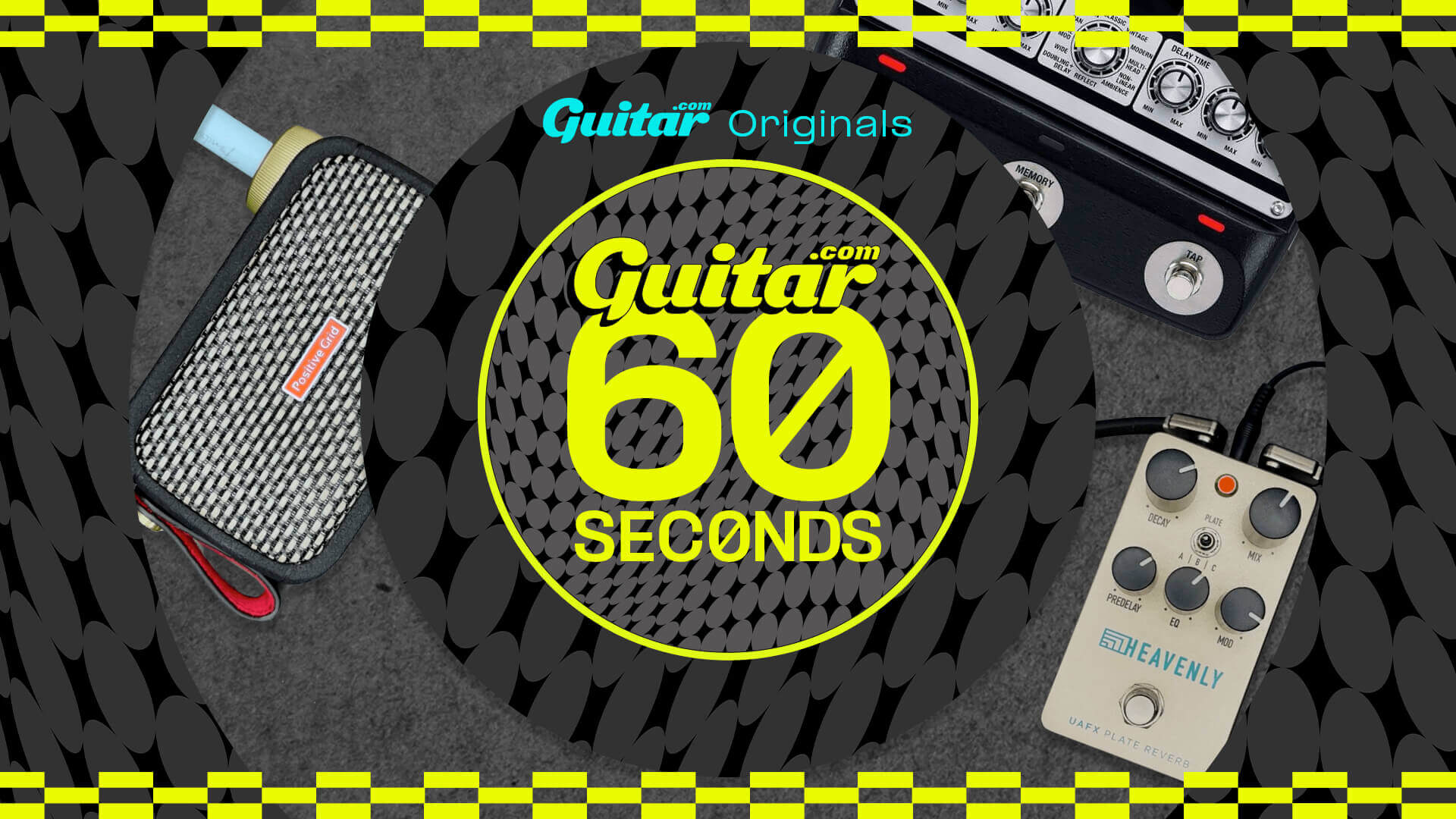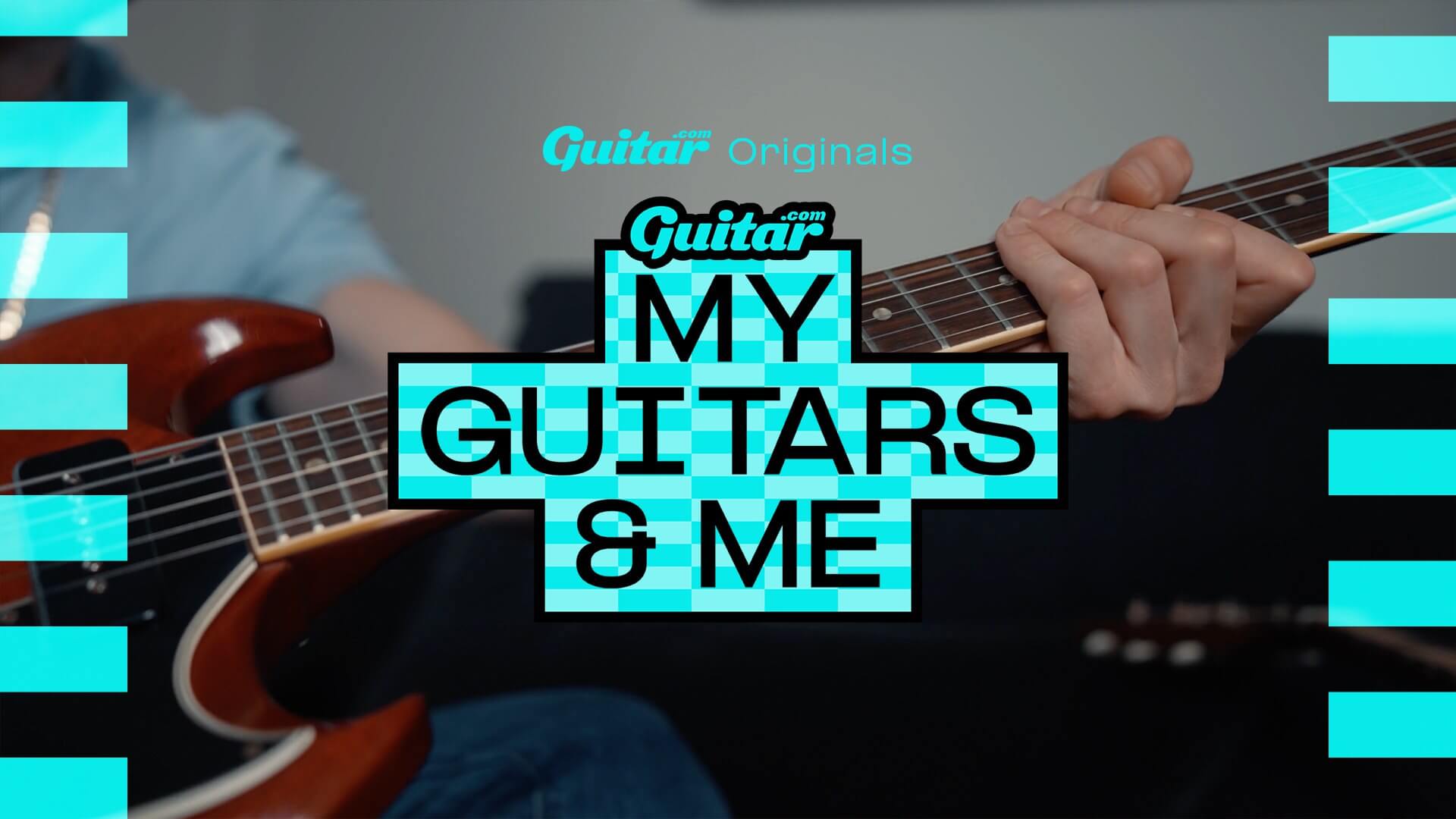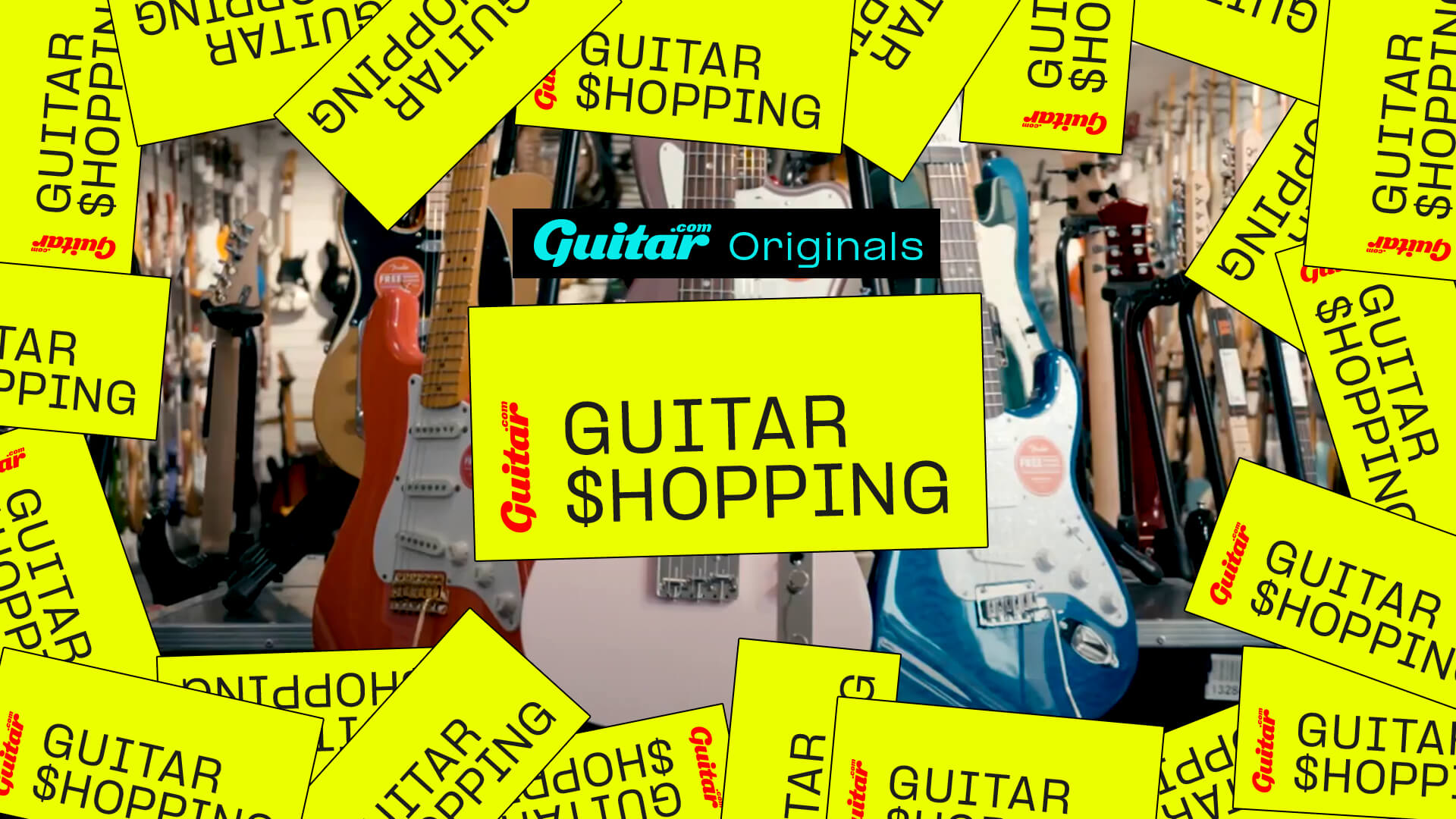“I love the blues, but my reality is not ‘Since my baby left me…’” James Bay on why he’s embracing the positives on new album, Leap
The English guitar player on dealing with imposter syndrome, working with Finneas, meeting a star-crossed Jaguar in Nashville, and why he’s writing a record that will hopefully encourage his guitar-playing fans to come out from behind their girlfriends.
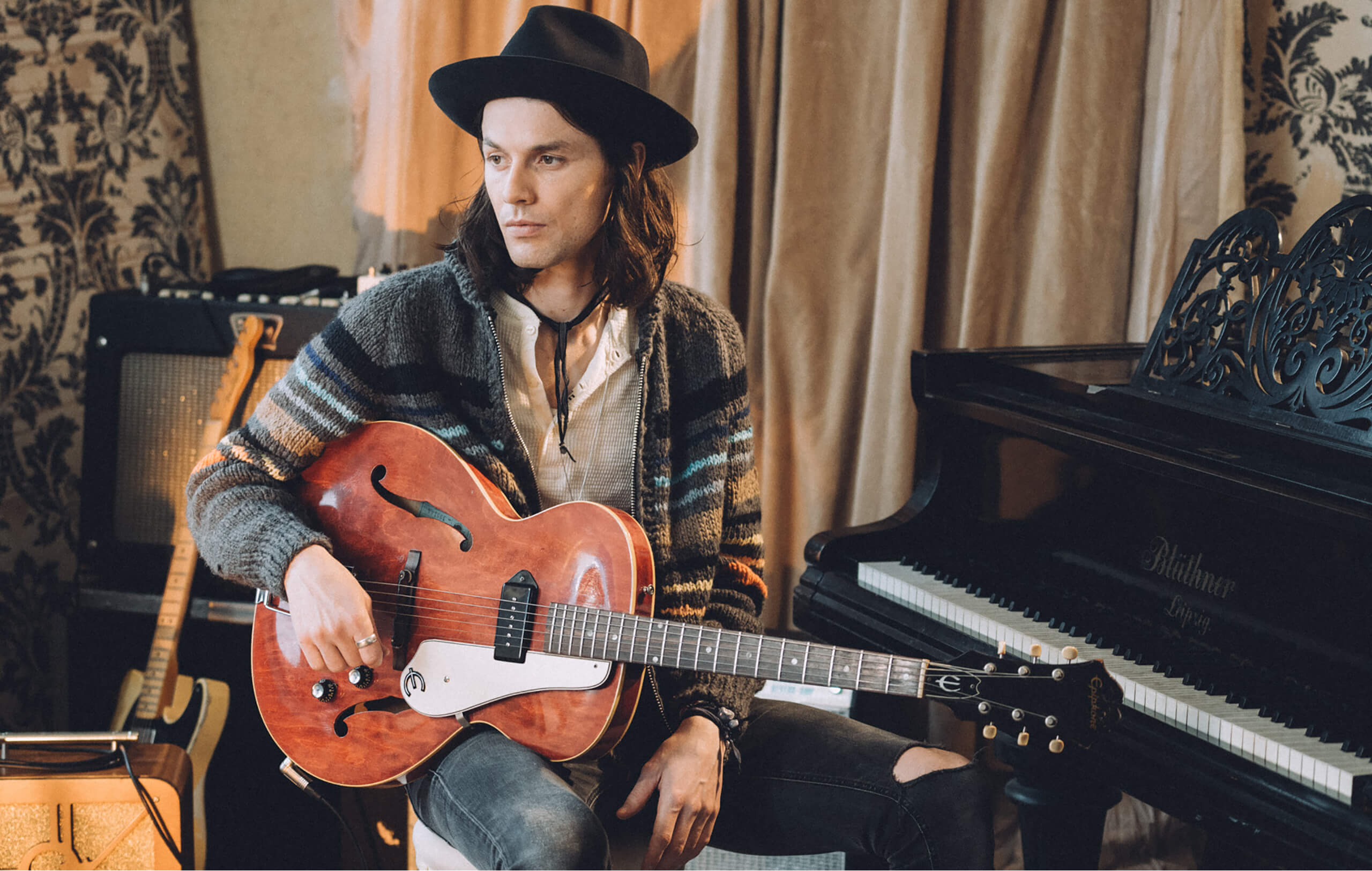
“Sorry, we’ve massively digressed here and the interview hasn’t even started…”
For the last five minutes, James Bay has been telling us all about his troubled relationship with gold foil pickups, having spotted a Harmony loaded with that most unique of pickups hanging on the wall over your correspondent’s shoulder on the Zoom call that is supposed to be about the 31-year-old BRIT-winning, Grammy-nominated English guitarist’s new record, Leap.
After enthusiastically trading tales of gold foils we’ve loved and particularly, Bay’s ShyBoy T-style loaded with a Lollar specimen, he’s just realised that the interview hasn’t even started yet and he’s already got carried away nerding out about guitar. Yes, friends, James Bay might be a behatted, handsome pop-star with hit songs that bothered the very top of the charts all over the world, but he is emphatically and unapologetically one of us.
If you want any further evidence that James Bay is a bona fide guitar obsessive, we’re straight into talking about the Murphy Lab Les Paul he’s just got, Gibson’s upturn in quality since coming under new ownership since 2019, and the thorny issue of artificial ageing.
“It’s unbelievable,” Bay enthuses of his singlecut-squeeze. “I was romanced, like a total simpleton, by the knackerdness! I got the most heavy relic’d one and even that helped me love humbuckers. I still have it, I play it on tour, it’s just gorgeous.” he pauses and laughs as he realises we’re now 10 minutes in and not one word has been said about this album he’s supposed to be promoting. “Well… what a lovely digression that was!”
Lights out
There was a time when some of his fans would have questioned if that type of guitar-nerd digression was still one Bay was interested in having. Nonsense, of course, but these are the sorts of silly conclusions that people jump to when you release an album like Electric Light. Bay’s sophomore effort was a stylistic left-turn into all the other musical genres that inspired him, whether they had a guitar in them or not – from hip-hop and R&B to electropop and soul. Critics and fans alike were polarised by this bold creative choice, with the NME describing it as “more like a lush, exploratory mixtape than a coherent album”.
Suffice to say, it wasn’t the sort of response that Bay was hoping for. Now, with four years of reflection under his belt, he’s able to elaborate on the crisis of confidence he felt following the lukewarm response to what he believed was a bold and exciting creative gamble.
“It was a difficult time, it’s a difficult thing to talk about,” he reflects. “But I love all kinds of music. I love old soul, I love new pop, I love rock ‘n’ roll in the truest sense. I love whatever started to happen on guitars in Brit-pop in the 90s… there’s so many different sounds that I adore. And I think any artist is trying to channel those into whatever they create, and I just don’t like to confine myself to one dimension. But I wonder if that sort of backfired?”
The appropriately titled, Leap then, is another jump into the unknown, but one made with the confidence and assurance of someone who has learned from the past.
“I think I’m starting to mature and settle with myself on what is me, and what I should maybe leave to my heroes,” he admits. “And I got caught up in bits of imposter syndrome in all of that, but I’d say to myself like, ‘What if what I’m doing just isn’t me?’ or, ‘What if I’m just not doing something that I really wanna do?’ And anxiety came in, and insecurity became a bigger issue and then imposter syndrome involved itself.
“I’m a performer. I’m an interpreter. I could’ve written a load of sad songs about how sad I felt about that. But instead I chose to follow that sadness for part of the journey and then find out how in each song to lift myself and explore what lifts me out. And enjoy sharing that with listeners, because that’s where I hoped we could all connect. That’s what we’re all looking for in music – the bit we connect to.”
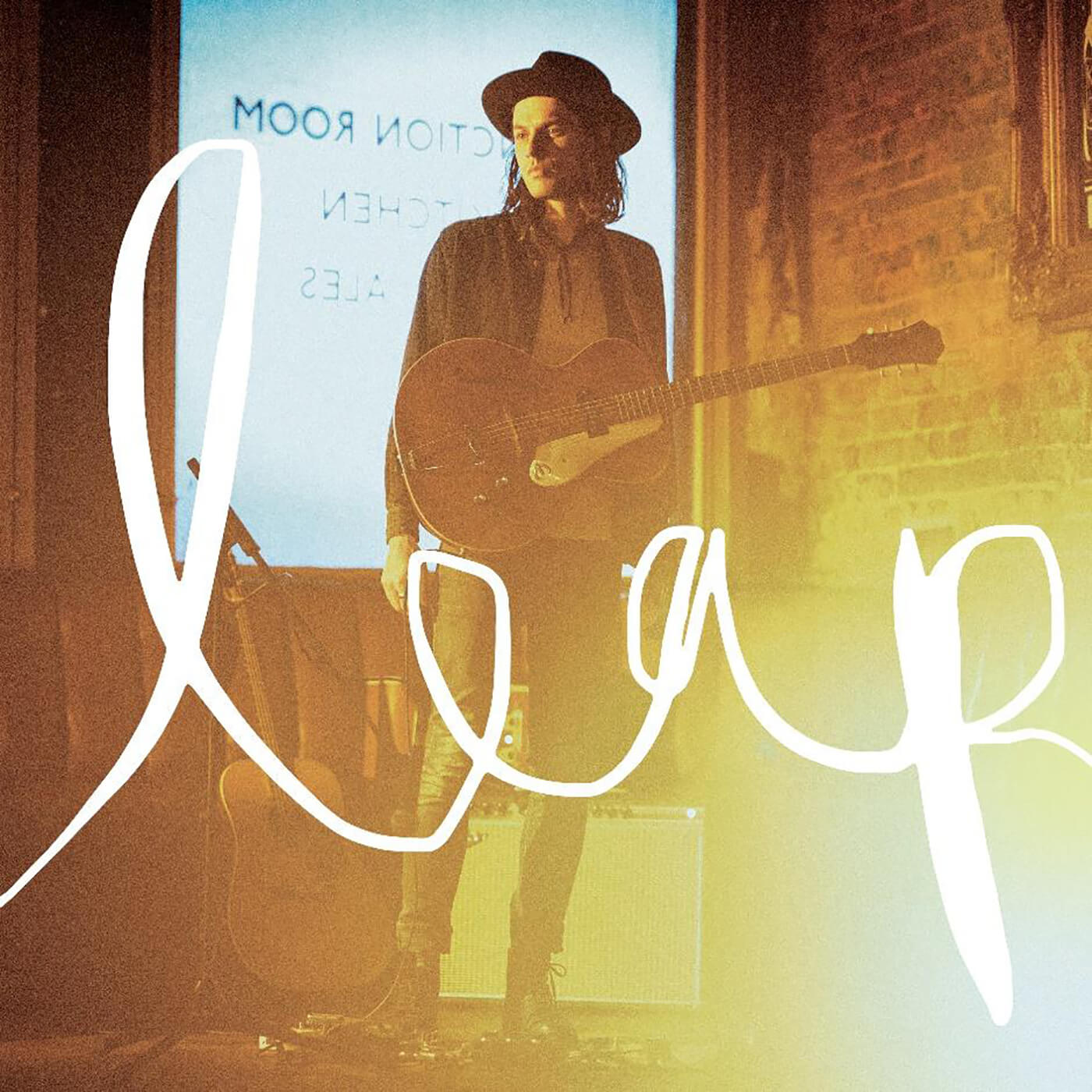
Leap forward
Leap is an album that feels at the same time a sensible rediscovery of what made Bay a Grammy-nominated rising star with 2014’s The Chaos And The Calm, but also a refreshing subversion of the classic tropes of blues and rock ‘n’ roll that can so often leave artists boxed in. After all, how many brooding bluesmen have you heard singing songs in appreciation of being happy and comfortable in a relationship, or celebrating the serene joy of being a new parent?
“Rock ‘n’ roll is rooted in the blues, and blues music is rooted in sadness. I’m inspired by all of that. But my reality is not, ‘Since my baby left me…’” Bay explains. “I fucking love that music, and I’ve listened to it religiously since I was 12, and I’ve always tried to be it in some way or another.
“And that’s why it became very natural to me, for a long time to write sad songs. But this time, as I tore up my rulebook of how I usually like to create, I decided to give myself the opportunity to write from whatever I was dealing with. Because sadness comes in waves. Anxiety. Things that men still aren’t allowed to fully open up and express. But on this occasion I didn’t want to be fully defeated by it and go fully blues! I didn’t want the song to start and finish as a sad thing.
“I pushed the boundaries of the lyrics and writing in that respect, and I pushed myself to try to celebrate in the writing, the things and the people in my life that lift me out of the sadness and out of the anxiety and insecurity. And I think I went on to kind of echo that in the guitar playing. There’s a brightness, there’s an energy, and I’m proud of it and I hope it resonates for people that hear it.”
But just because he’s trying to put a more positive and affirmative spin on the classic recipe of rock ‘n’ roll doesn’t mean that he thinks everyone should – far from it.
“You still have your Greta Van Fleets and Måneskins, these acts that in 2022 say, ‘We’re traditional rock ‘n’ roll!’ And I’ll say, ‘Great stuff mate – go for it! Do your thing!’ And I’m very happy for them. But I’m trying to be honest with myself,” he reflects.
“If you go back to the 60s and the 70s, Led Zeppelin or the Stones, the most honest thing they could do was break as fast and hard out of the confines of the nice haircuts of the time, and the sensible dress of the time – by wearing all those colours and letting their hair grow long.
“And in 2022 I feel like maybe it could be just as rock ‘n’ roll for me to be inspired by all of that posturing – and absolutely I am – but try and stay honest to who I am inside emotionally. To let that shine through, still make that same kind of music, still pick up that guitar and still want to call it rock ‘n’ roll.”
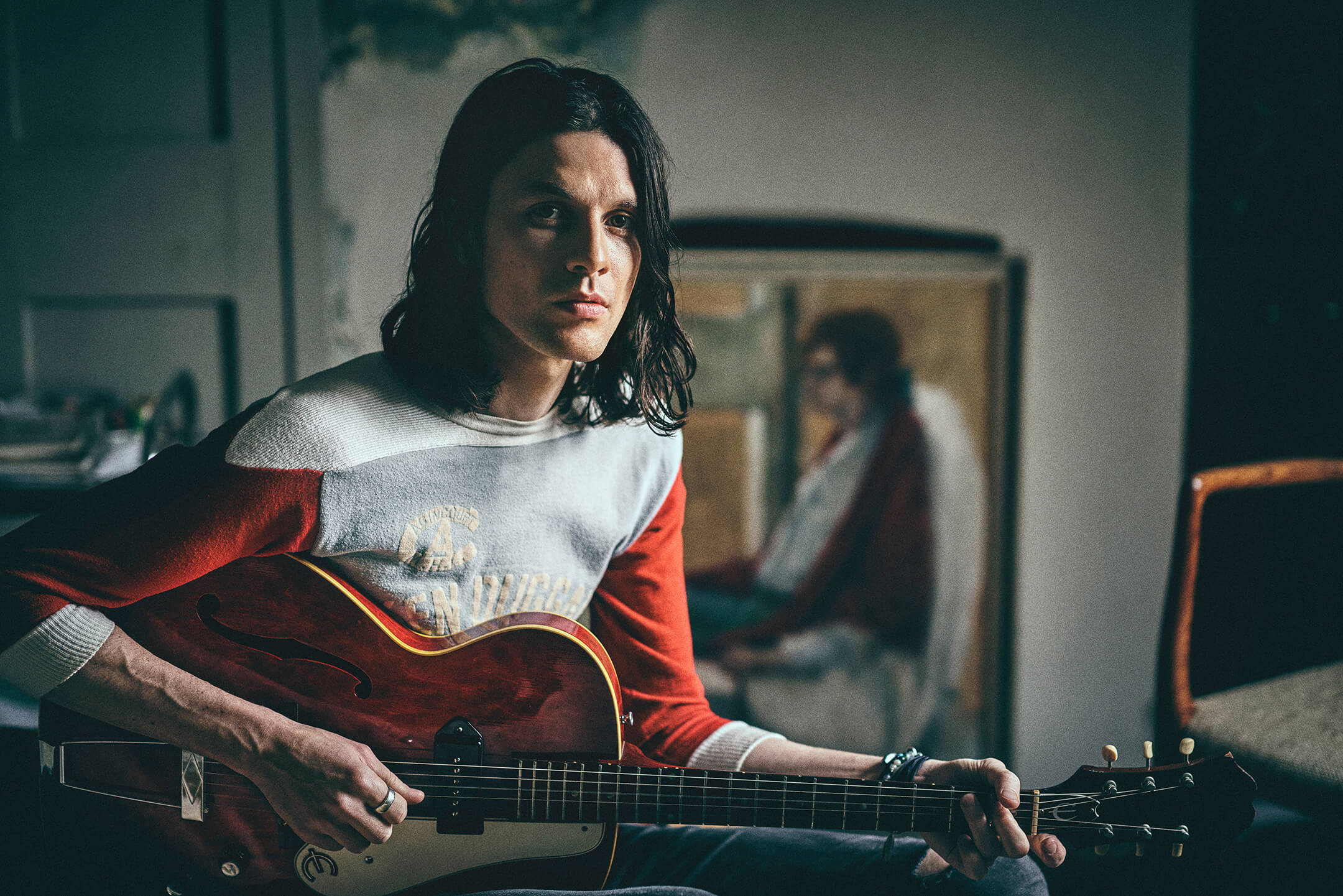
Nashville session
As part of his desire to get back to making rock ‘n’ roll, Bay returned to Nashville, site of The Chaos And The Calm’s sessions to record Leap, but this time he would team up with the city’s hottest producer Dave Cobb, who welcomed him into the hallowed halls of his home at RCA’s legendary Studio A. And it didn’t take long for Cobb to remind Bay of exactly what it means to record in such an iconic room.
“We went into the studio to just sort of hang out and ‘embrace the space’,” Bay recalls. “I said, ‘So what else have they done in here Dave?’ He was like, ‘Well, in 1975 Dolly Parton came into this studio and in about three hours she laid down, Jolene, and I Will Always Love You’. Like it was no big deal! Oh fantastic Dave – let’s make a record. Fuck!”
With his eight Grammy wins to date, Cobb clearly knows how to get the best out of artists he’s working with, and for Bay that involved some gentle cajoling to push him out of his pop-centric comfort zone.
“I love all these old records from decades ago, where they didn’t press go on a click-track or a metronome, and the drummer counted them in,” he explains. “And I talk a big game as to how much I love that, but I try to operate from a standpoint that my music will hopefully go on the radio today as well! It’s harder than ever to record music like that in the old style and get it on the radio, but Dave was like, ‘Y’know, if you’re gonna say you love it so much we’ve got to give it a shot!’ And it was frightening! The pop side of my brain was like, ‘Oh god!’ Even afterwards, coming away from it I’d listen back and I was like ‘Ahh I’m not sure!’ Now I’m glad.”
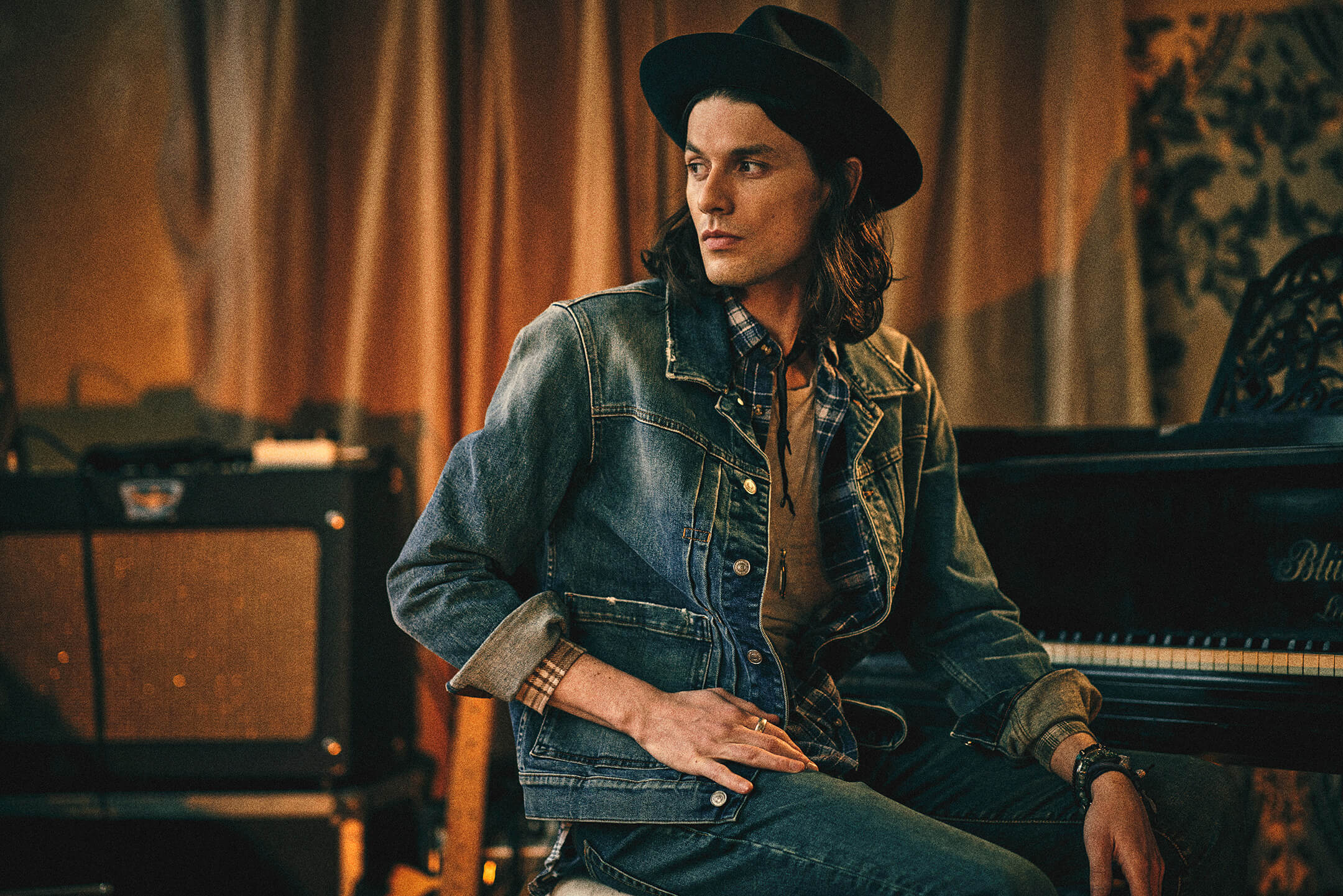
Bay left RCA Studio A just as the pandemic was becoming a real and scary thing, thinking he had a completed album under his belt. But the following months of isolation and stagnation led him to do something rather radical – he culled roughly half of the Nashville-produced tracks for numbers he’d written in isolation, recorded at home with the aid of remote collaborators from around the world.
“Because I wasn’t going to be able to release it, I did a bunch of writing,” Bay explains. “I wrote new songs at the end of 2020 and throughout 2021 that beat some of the songs that were originally on it. I never planned to do it like that – I would never want to do it like that again! But I am sort of proud. It forced me to tear up the rule book and face the times that we were all living in. And I decided to make a record, and let it be an example of how we were living and how I was having to make a record. So that in 10 years, in 20 years, if anyone asks I can say, ‘Well, it sounds like that because this is what was happening in the world.’
“It reminds me of when Bob Dylan said, ‘You have to write about the times, you have to make music for the times that you’re living in’. And I think I certainly made a record that is kind of like collage of different moments from the beginning of 2020, ’til the end of 2021 – all the times that we lived through. And I’m very proud of it.”
One of the people that Bay collaborated with on the album is none other than Finneas – brother, co-writer and producer of the biggest pop star on earth, Billie Eilish. As you might expect, Bay was happy to hand his stems over to pop’s most in-demand collaborator and let him go crazy, but in reality Finneas was much more hands off than he expected.
“It was an interesting experience,” he reflects. “It was wonderful, but his opening gambit when we started to talk was, ‘Hey man, I’m a fan of yours!’ Which is flattering, although he made me feel very old. Because back when I first went to the Grammys, I was in town for a week before doing press and promo, and I did a thing where I sat in front of an audience of about a hundred people and talked about the songs, the making of my first album, and played. And he told me he was in the audience as a fan, like, ‘Yeah man, I was in college!’ and I was, ‘Fuck you’re young…’
But it helped me understand why, when I sent him the guitar part for that song, he left it alone? It almost felt like he was handling it a little bit as a fan? He kinda, Finneas’d around it! He was like, ‘No that’s good, I don’t know why I’m touching that! And then he put a load of great Finneas stuff around it which I really respected. It was flattering that he wanted to treat it that way, because he is quite a visionary in his own right. And I love how it fell together.”
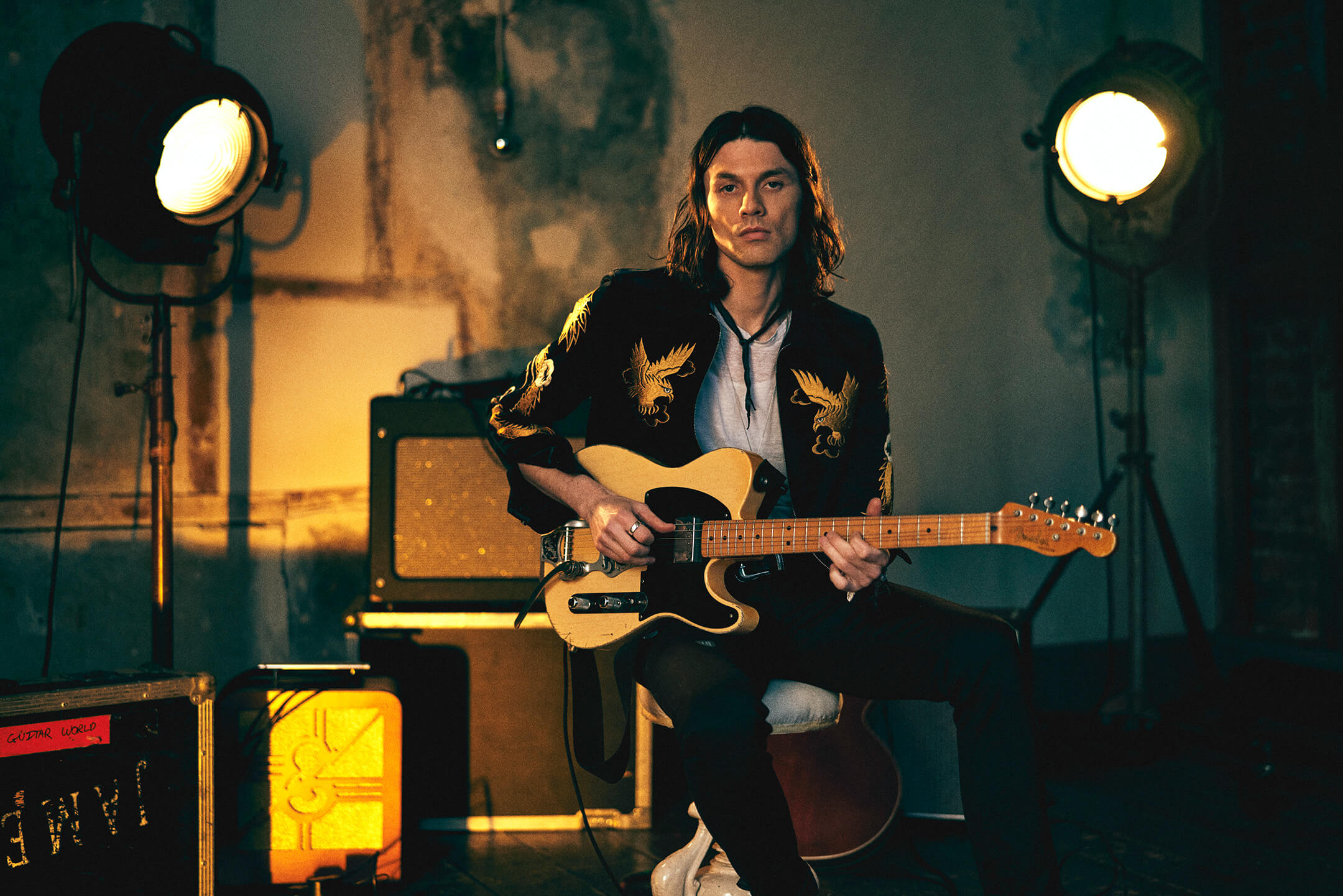
Me-type Jag
It’s been a minute since we’ve had a guitar-related digression, hasn’t it? Okay, okay, he’s been trying to talk about a very special guitar he met in RCA Studio A for ages now, but we keep asking him about other things – but we can restrain our subject no longer.
“Dave had this battered 1963 Fender Jag – really battered up.” Bay explains of the most memorable guitar he used on Leap. “He hadn’t had it for long, and he said he hadn’t really given it a run-around yet, but I loved the look of it. But it was fun to muck around with that, but on one particular song, I plugged it to a Jazz Chorus and it sounded so fucking cool. We loved it, and I said, ‘I think this is the sound…’ and Dave was like, ‘I love that sound!’
“So we did a run-through take and Dave is taking that old-school approach, ‘That’s the take!’ And I was like, ‘Whoa. Whoa there. As the guy that likes to do ten takes, can we at least do a second?’ And he’s cool with it, he sits in the room with the band and he plays a shaker or a tambourine, and we run through it again and, ‘Oh my god, it sounded great – to this day it’s one of my favourite memories of the sessions, just playing the take through.’ But then we finished, he put his tambourine down and said, ‘That’s the take… and that’s your guitar now.’
“I was like, ‘Are you joking me?’ He was like, ‘You have to have it. You have to take it home. You sound so fucking good playing it.’ I was like, ‘Mate, but this is your 1963 Fender Jag!’ And he’s like, ‘Nope! As long as you promise me you’ll play it live you’ve got to keep it.’
“But the funniest part is, as I said, he hadn’t owned it very long, and as he was telling me this, I was holding the guitar in my hands, turning it around, looking at it, and I noticed something on the neck plate. The previous owners of this guitar had been scratching names into plate, with like a key or something, and there were two legible names there – someone had scratched the name ‘James’ and someone had scratched the name, ‘Dave’.
“And Dave got well spooked by this! He’s a beautiful man and he’s quite a religious dude, and he got quite freaked out because he hadn’t clocked this, having not owned this guitar for very long, and living in a studio with 100 guitars. And they had last names that went with them, but they’d fucked them up, you couldn’t really read those. It was unbelievable. I was like, ‘Dave do you know this is here?’ He was so freaked out, It was like some weird magic trick. But that’s the sort of mad shit that only happens when you’re in Dave Cobb’s studio in Nashville!”
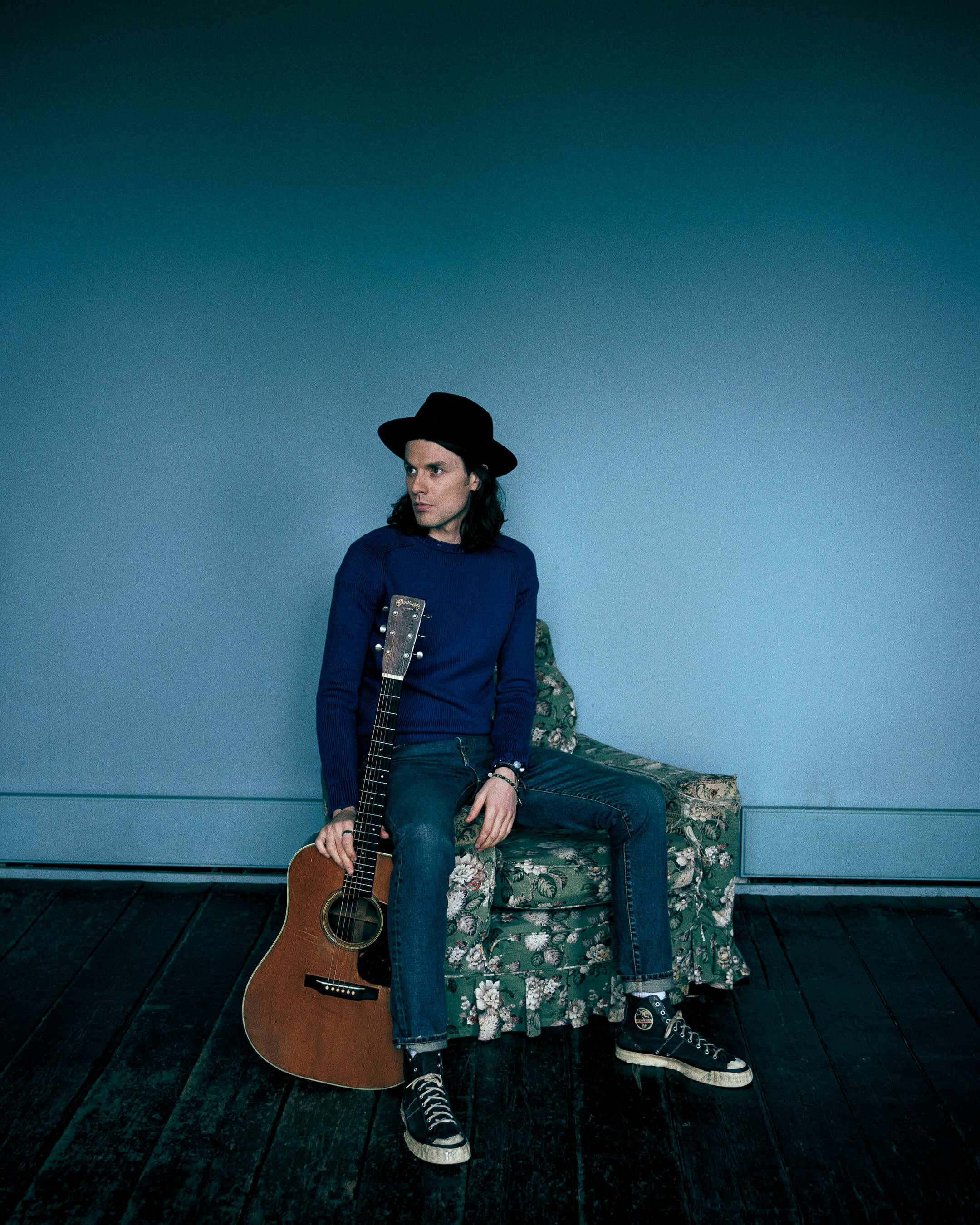
Guitar star
If Leap is a return to doing what he does best as a songwriter and as a guitar player, it’s still not what you might term as a showy guitar album. As an alumnus of Brighton’s prestigious BIMM school of guitar, we know he’s got the chops – and indeed he’s been known to let them out in a live environment – so what gives?
“I’ve increasingly become more and more of the guitar player that I’ve always wanted to be, live,” he admits. “Now that’s live. On a record, it’s still subtle as far as guitar playing goes. It’s chords and it’s parts, and it’s little riffs here and there – it’s not a lot of lead parts and stuff like that.”
We wonder if it’s perhaps that old British sense of not wanting to seem like you’re showing off or drawing too much attention to oneself?
“You’re a Brit man, you know,” he chuckles, shaking his head. “Let’s be completely honest, we love our American influences – our guitar kings and queens and all that. But we find it a little bit harder to sort of… thrust our hips out, guitar forward!
“But like, I’m on album three – album four is round the corner… it’s only a matter of time! Fuckin’ Daryl, the engineer at RCA Studio A, kept saying to me all the time – and obviously he’s an American – but he was like, ‘When are you going to play some solos?!’ And there’s a little acoustic guitar solo at the end of one of the tracks where I go all Wonderful Tonight…” he picks up his acoustic and plays some deft runs almost apologetically. “And even now I’m like, ‘Oh god!’”
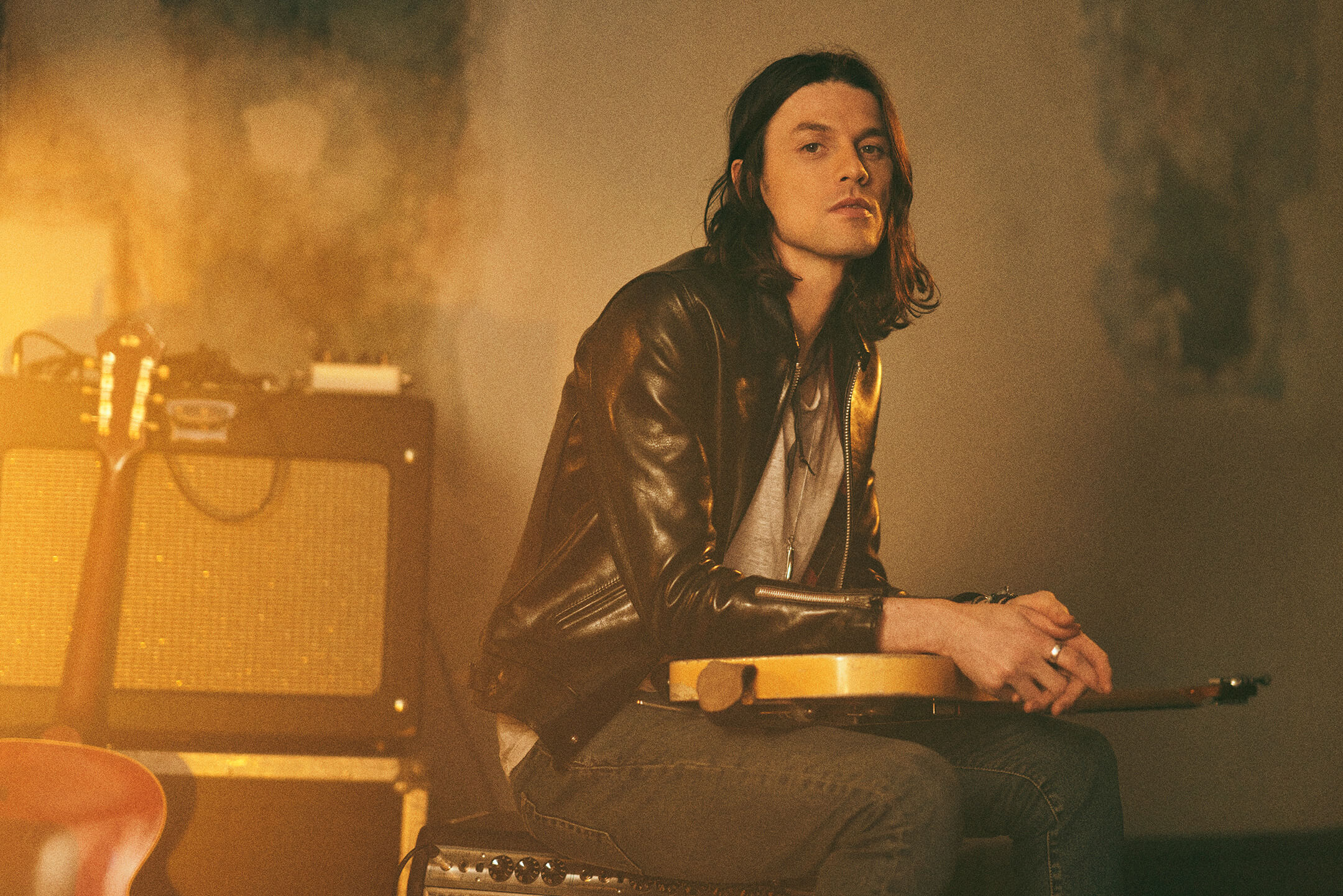
It’s a pity, because it’s abundantly clear that James Bay is a hot shit guitar player, and we’ve not even seen him cut loose.
“I appreciate the recognition, I really do,” he laughs. “And I feel like album four is the time for that and I’m looking forward to it. I don’t know how I’m going to work it in yet, because I still won’t want to make it incredibly obvious. I admire John Mayer for writing his solos. Y’know I love to just improvise, but if you go to see Lynyrd Skynyrd play Free Bird, for example you want it note for note. Or y’know, the slide part at the end of Layla – you want that pretty note for note I don’t think there’s much room for anything else.
“So I think I’ll try not to be overly loose about it, and I’ll try and keep it engaging rather than just empty licks. Because unfortunately, as a guy who loves them, I think they do exist as well. You’ve got to be careful. But I’m gonna try and find a way to do that. I know I’ve got guitar player fans out there! And sometimes it feels like we’re both keeping something a secret! If they come to my shows they’re sort of sheepishly behind their girlfriend, and I’m like, ‘No, no, no! Come forward! Let me show you this! Let’s geek!”
Leap is out 8 July on EMI Records/Republic.

